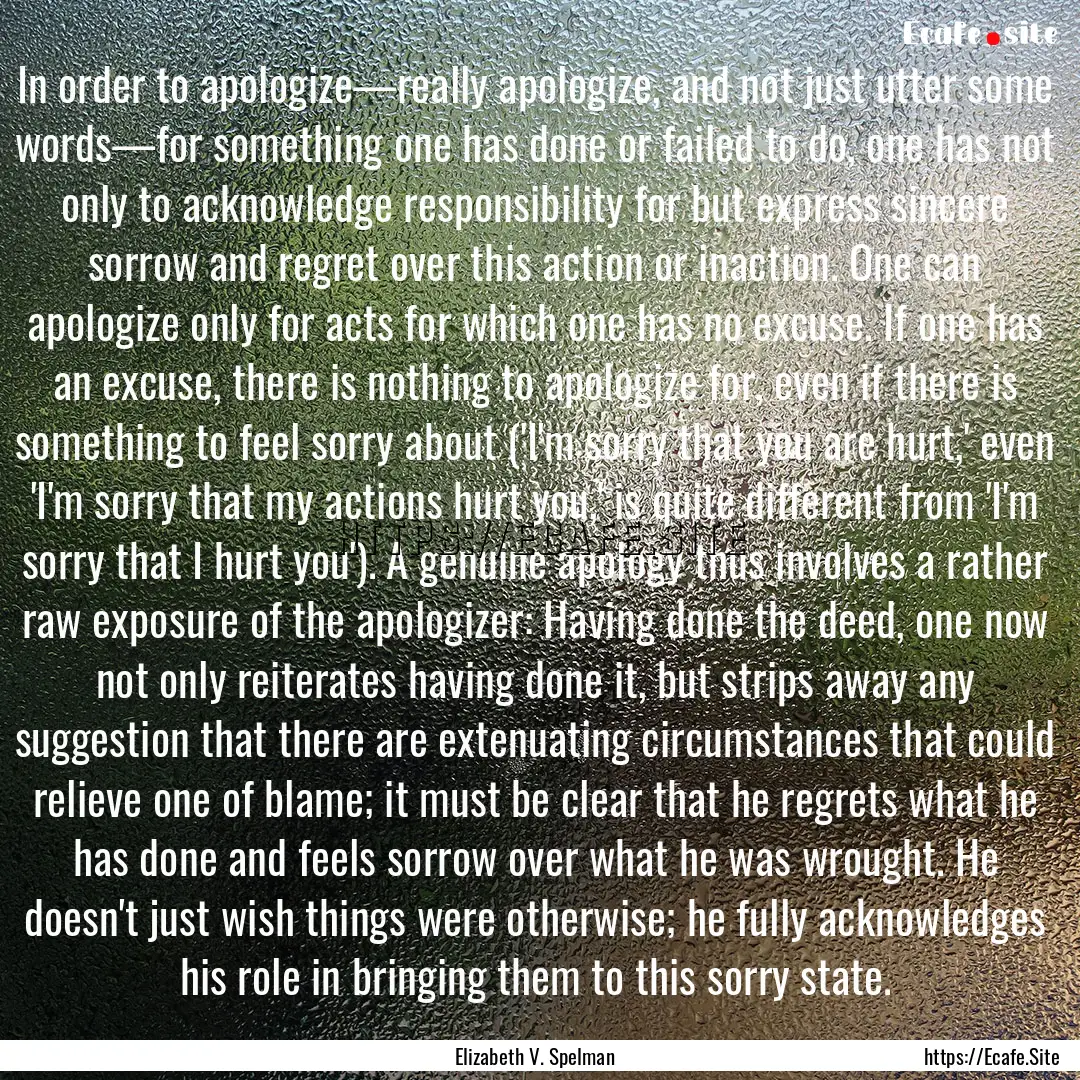
Report, if you have a problem with this page“ In order to apologize—really apologize, and not just utter some words—for something one has done or failed to do, one has not only to acknowledge responsibility for but express sincere sorrow and regret over this action or inaction. One can apologize only for acts for which one has no excuse. If one has an excuse, there is nothing to apologize for, even if there is something to feel sorry about ('I'm sorry that you are hurt,' even 'I'm sorry that my actions hurt you,' is quite different from 'I'm sorry that I hurt you'). A genuine apology thus involves a rather raw exposure of the apologizer: Having done the deed, one now not only reiterates having done it, but strips away any suggestion that there are extenuating circumstances that could relieve one of blame; it must be clear that he regrets what he has done and feels sorrow over what he was wrought. He doesn't just wish things were otherwise; he fully acknowledges his role in bringing them to this sorry state. ”

Elizabeth V. Spelman
From : Repair: The Impulse To Restore In A Fragile World



